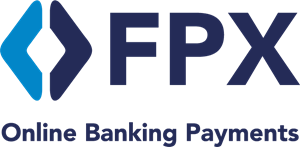Our Security group observed that greater part of the site being damaged are utilizing CMS (Content Management System) e.g normal CMS are Joomla or WordPress. At present CMS itself doesn’t have that numerous security requirements [though new variants forms are sent off much of the time by them] it isn’t so exceptionally secure, so dealing with your blog by following the means below is better:
i) Make Sure CMS is 100 percent secure
Try not to accept that your open source CMS is 100% secure. All product have issues and screw-ups or security openings. On the off chance that a CMS has a security blemish programmers will track down them sooner or later.
ii) Keep yourself updated on security issues in your CMS
Remember to keep yourself refreshed on security issues in your CMS. Most open sources frameworks discharge refreshes consistently “very much like Windows or OS X”. Anyway not all frameworks check for refreshes quickly and some can’t introduce them with a solitary snap. Keep yourself refreshed by joining the open source administration mailing rundown or following their Twitter account.
iii) Updating your CMS
Remember who is responsible for refreshing your CMS. Perhaps you have utilized your facilitating supplier’s 1 snap installer or maybe your website specialist has introduced the CMS for you. In any case, do they refresh it for you? Once in a while. Remember it’s your obligation that your CMS is refreshed with the most current security patches. Anyway you could re-appropriate the errand to your website admin, site advancement master or web specialist.
iv) Don’t neglect
On the off chance that your CMS gives you update cautions, don’t disregard them. Frameworks like Umbraco and DotNetNuke have a capability that checks assuming that there are refreshes accessible when you sign in. A framework like WordPress additionally checks and by a couple of snaps in the administrator you can refresh your CMS effectively (remember to reinforcement before you update). Treat the update alert in a serious way and update straight away!
v) Update third party modules
Remember to refresh outsider modules. Engineer other than the open source group can foster modules on your CMS. These modules can likewise contain security issues. Similarly as you must be refreshed on the CMS refreshes, you additionally should be refreshed on reports on any of the outsider modules your CMS utilizes.
vi) Team up with an expert or a supporter
Remember to collaborate with a specialist or an ally. Staying up with the latest can be troublesome. Be that as it may, assuming that you collaborate with a used to specialist update your sort of open source framework, you can save important time and focus on maintaining your business. You can pay him month to month and he will make the updates when accessible, or your can pay by undertakings.
vii) Robust password policy
Remember to have a hearty secret word strategy. This is actually the main motivation why programmers gain admittance to frameworks – powerless passwords! Attempt to make a long secret word, something like 8 characters with the two numbers and letters. Try not to utilize your name or hurdle in addition to city. In the event that you find it hard to recall long passwords, endeavor to make a sentence with a number, and afterward utilize the first letter of each word to make a secret phrase. For example “The Rabbit got around 4 Stones and 7 Flowers” makes the secret key TRjo4Sa7F.
viii) Backup your full system
Remember to reinforcement your full framework, the two documents and information base – continually. Try not to underestimate that your facilitating provider backs up everything. Well they do, however botches happen even in the biggest facilitating providers. Likewise the facilitating providers’ reinforcement history might be two or three weeks in length. In the event that your framework gets hacked, the absolute first thing a programmer does is leaving a secondary passage. After weeks maybe months he returns and destroys the landing page. While your facilitating provider restores from the most current reinforcement the hack is by all accounts settled on a superficial level, yet the secondary passage is still there.


